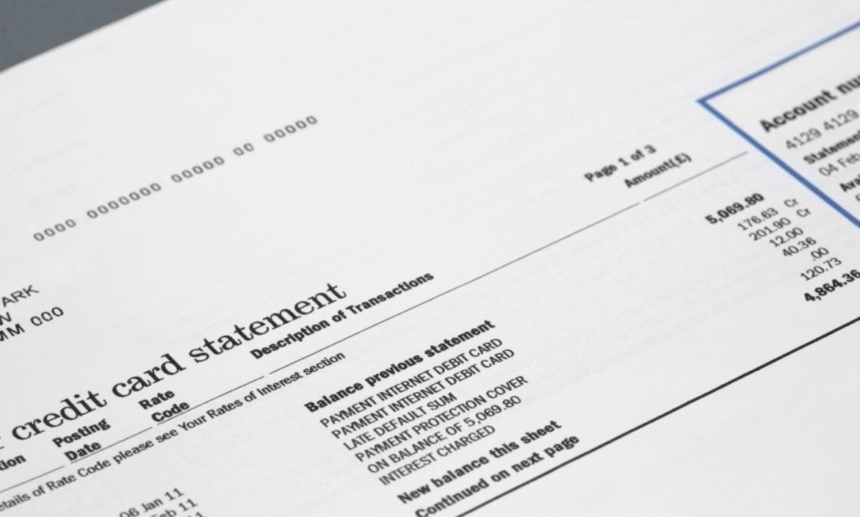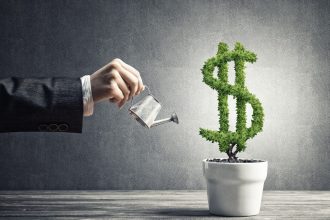We all get busy, and sometimes the last thing on our minds is reviewing that credit card statement that pops up in our inbox each month. But let’s be real—checking your credit card statement is not just about finding out how much you owe. It’s about giving yourself peace of mind and taking control of your finances. Whether you’re dealing with personal relief loans or just trying to get a grip on your spending habits, reviewing your credit card statement is an essential step. You may not think about it often, but it’s more than just a formality; it’s a tool that can help you avoid trouble down the road.
Why Skipping Your Statement Can Be Costly
At first glance, credit card statements seem straightforward—charges, payments, and a total balance due. But if you’re not paying attention, small mistakes can easily go unnoticed. Those “small” charges can quickly add up. If you don’t review your statement regularly, you might miss hidden fees, unexpected charges, or even fraudulent transactions that can throw off your budget.
The truth is, catching these errors early can save you from expensive headaches like late fees, interest charges, or even damage to your credit score. Think about it: if you’re constantly unaware of your credit card balance, you’re likely setting yourself up for a stressful situation when that payment is due. The good news is that by reviewing your statement each month, you give yourself the chance to spot these issues before they spiral out of control.
Financial Control Starts with Awareness
Another key benefit of regularly reviewing your credit card statement is the ability to manage your spending. It’s easy to lose track of where your money is going when everything is done digitally. Subscriptions, impulse buys, and those “treat yourself” moments can all add up without you realizing it.
When you go through your statement line by line, you get an honest snapshot of your habits. Are there charges you didn’t recognize? Did you splurge on things you didn’t actually need? Maybe you’ll notice subscriptions that you forgot to cancel or recurring payments for services you no longer use. By seeing it all laid out, you can make informed decisions moving forward about where you might want to cut back.
Don’t Let Fraud Sneak Up on You
In the digital age, identity theft and credit card fraud are real threats. Sometimes, fraud can be so subtle that you don’t even notice it at first. That’s why keeping a close eye on your credit card statement is one of the easiest ways to catch fraud early. If someone has stolen your card details or your number has been compromised, the charges may not immediately jump out at you. However, by reviewing your statement, you’re far more likely to spot suspicious charges quickly and take action.
Most credit card companies are pretty good about monitoring for fraud and will notify you if something unusual happens. However, your statement is your first line of defense. The quicker you spot something that doesn’t belong, the easier it will be to resolve the situation without too much hassle.
Avoiding Late Fees and Interest Charges
If you’re not careful, late payments can lead to additional fees and interest charges. While some people don’t mind paying the minimum payment each month, that can be a costly habit if you’re carrying a balance. Credit card companies typically charge high-interest rates on outstanding balances, meaning you’re paying even more than you initially borrowed.
By reviewing your credit card statement regularly, you’ll know exactly when your payment is due and how much you owe. Many people who overlook their statements end up paying late fees simply because they lost track of time or didn’t realize a payment was due. With regular checks, you’ll always stay on top of deadlines and avoid unnecessary charges that could pile up.
Personal Relief Loans: A Useful Financial Safety Net
Life happens, and sometimes you might find yourself in a tight spot financially. If you’ve been using your credit card more than you should, you could end up in a situation where the balance feels unmanageable. In cases like this, personal relief loans can offer some breathing room. These loans are designed to help you consolidate your debt or provide short-term relief to help you pay off your credit card balance at a lower interest rate.
If you find yourself struggling with credit card debt, reviewing your credit card statement is the first step in deciding if a personal relief loan might be a good fit for you. By keeping track of your spending and remaining aware of your financial situation, you can determine whether borrowing a little extra money could ease the pressure.
Building Financial Confidence
Finally, when you make the habit of reviewing your credit card statement, you’re not just keeping track of expenses—you’re actively building confidence in your financial management skills. By taking ownership of your spending, staying aware of where your money goes, and making sure your charges are accurate, you’re setting yourself up for better financial health. Over time, this practice will help you become more comfortable with budgeting, paying bills on time, and making better financial decisions.
Conclusion: Stay Ahead of the Game
Reviewing your credit card statement doesn’t have to be a chore. Instead, think of it as an opportunity to take control of your financial life. It might seem like an extra step, but trust me—it’s worth it. Whether you’re avoiding fraud, managing spending, or preventing costly fees, this small habit can go a long way in securing your financial future. So the next time that statement arrives, give it the attention it deserves. Your financial well-being will thank you later.















